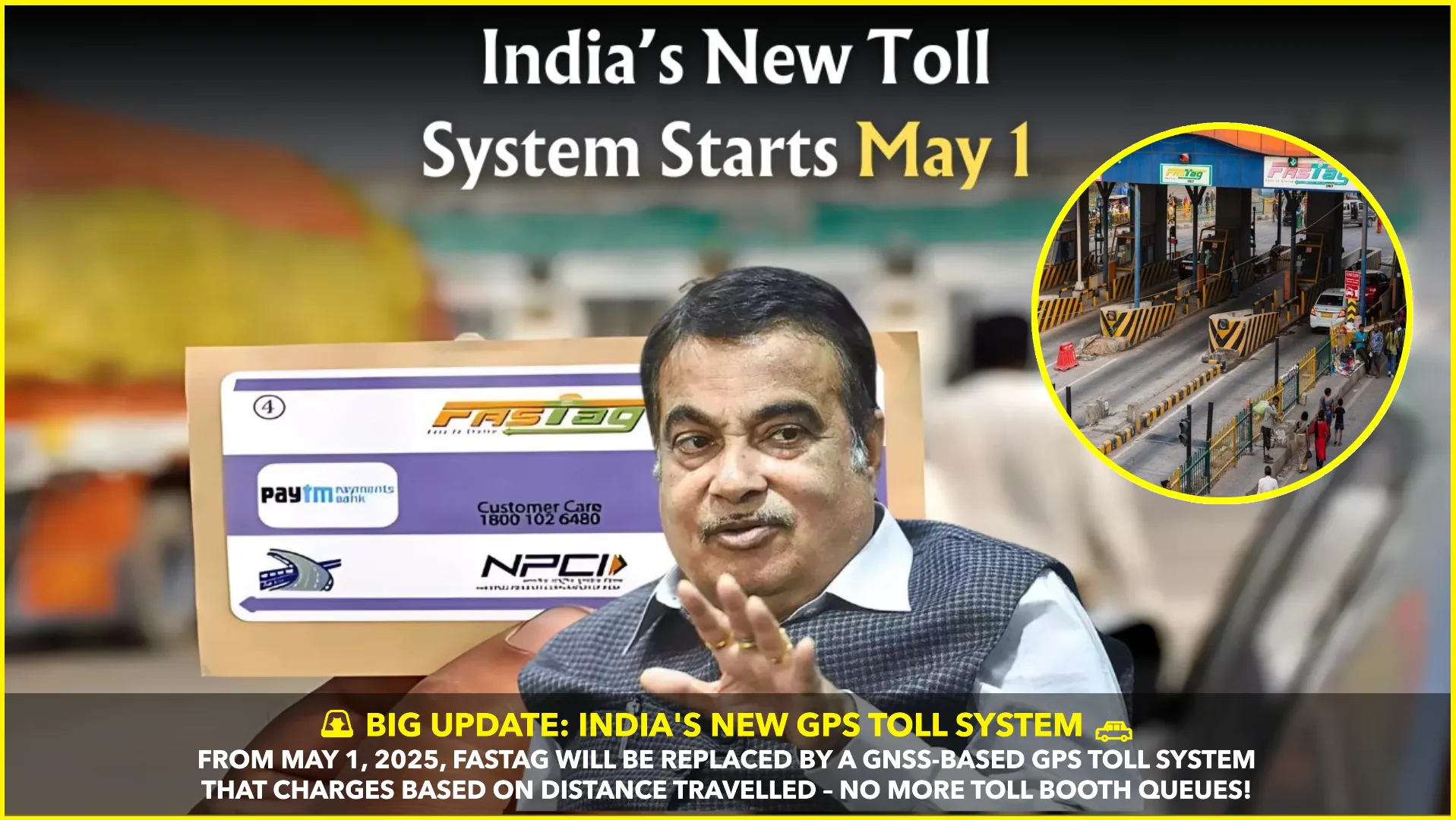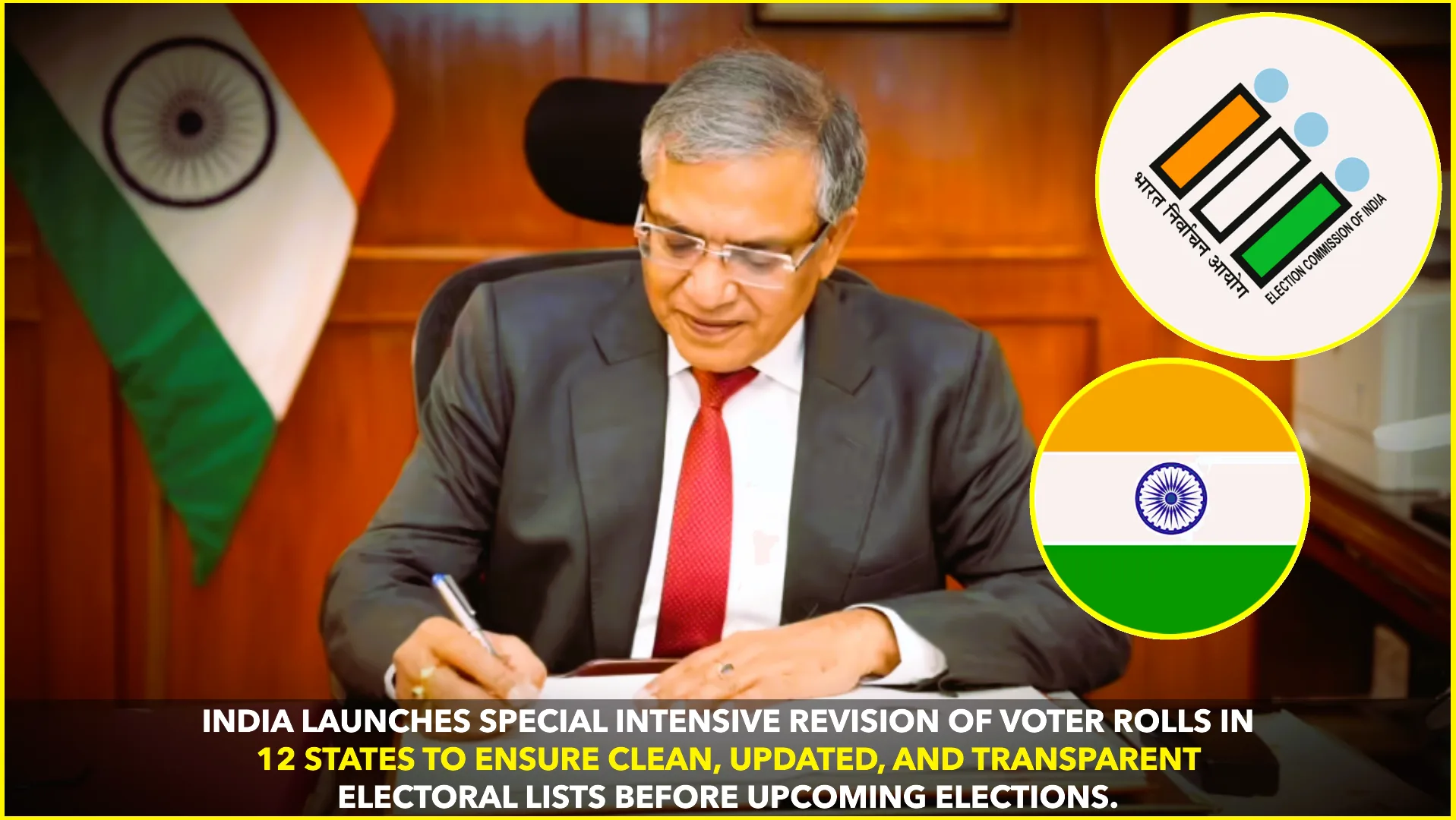In a major reform aimed at streamlining the toll collection system and enhancing efficiency on national highways, the Indian government has announced that it will phase out FASTag and implement a GNSS-based (Global Navigation Satellite System) GPS toll collection system starting May 1, 2025. This transformative move marks a shift from the current RFID-based tolling mechanism to a more advanced distance-based tolling model.
According to a recent statement by the Ministry of Road Transport and Highways (MoRTH), under the new system, toll charges will be calculated based on the actual distance travelled by a vehicle on a tolled highway, as opposed to the current model where vehicles are charged a fixed fee for crossing toll plazas, regardless of the distance travelled within that stretch.
Key Features of the New GPS-Based Toll System
To ensure smooth implementation, all commercial and private vehicles will be required to install a government-approved GNSS-based GPS device. This device will track the movement of the vehicle on tolled roads and transmit the data in real-time to a central tolling system. The toll amount will be automatically deducted from the vehicle owner’s linked bank account or digital wallet, eliminating the need to stop at toll plazas.
Additionally, the Ministry confirmed that FASTag will remain operational only until April 30, 2025. From May 1 onwards, only GPS-based tolling will be accepted on national highways where the system has been deployed.
This initiative is being rolled out under the government’s “One Nation, One Toll” policy, which aims to create a seamless and efficient road user experience by doing away with physical toll booths.
Advantages of the GNSS-Based Tolling System
- No More Toll Booth Queues: Since toll charges will be collected automatically via GPS, vehicles will not have to halt at physical toll plazas, reducing travel time and congestion.
- Pay-As-You-Go Model: This distance-based tolling ensures fairness, as users will only pay for the exact kilometers travelled on tolled roads.
- Reduced Operational Costs: With the removal of physical infrastructure like toll booths, maintenance and staffing costs are expected to decrease significantly.
- Minimized Toll Fraud and Evasion: GPS tracking will reduce instances of tampering and fraudulent toll avoidance that were possible with the RFID-based FASTag system.
- Environmental Benefits: Smoother traffic flow and reduced idling at toll booths will lead to lower fuel consumption and reduced vehicular emissions.
Implementation Strategy
The National Highways Authority of India (NHAI) has already begun pilot testing the GPS-based tolling system in selected corridors, including the Delhi-Mumbai Expressway. A full-scale rollout will be conducted in phases, with the necessary infrastructure and support systems being upgraded to handle the GNSS tolling model.
Vehicle owners will be required to:
- Install a government-approved GPS device (details to be shared soon via the MoRTH portal).
- Link their bank account or digital payment platform for automatic deductions.
- Ensure vehicle registration details are updated and linked to the GPS tolling system.
MoRTH is also expected to launch a dedicated helpline and online portal to assist users with installation, registration, and troubleshooting issues.
Challenges Ahead
While the system promises major benefits, challenges such as device installation costs, ensuring uninterrupted GPS connectivity, and data privacy concerns may pose hurdles during the transition. Experts believe that a strong awareness campaign and incentives for early adoption could help smoothen the rollout.
Conclusion
The replacement of FASTag with a GNSS-based tolling system is a significant step toward modernizing India’s road infrastructure and aligning it with global standards. By eliminating physical toll plazas and adopting distance-based tolling, the government aims to create a faster, more transparent, and user-friendly highway experience.
Source:
Ministry of Road Transport and Highways Press Release (April 2025): https://morth.nic.in
News18 Report: https://www.news18.com/auto
Economic Times: https://economictimes.indiatimes.com










